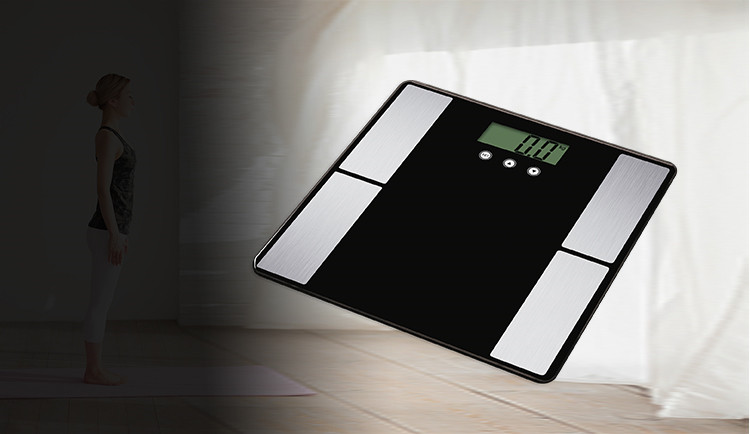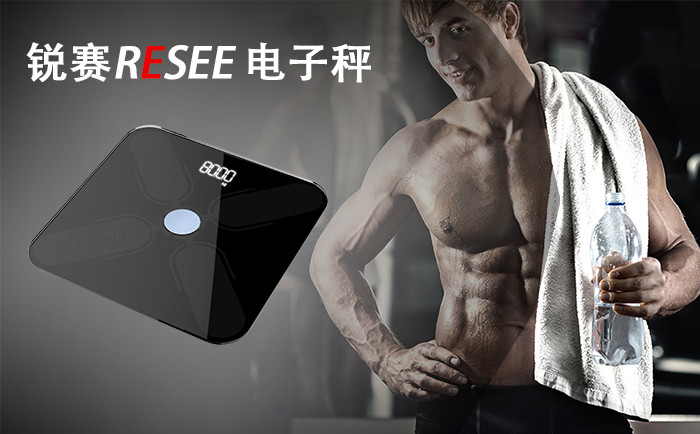This percentage on the body fat scale may not be exactly the same as what you think.
Once, I was talking to someone who had just taken a body fat test. He has cleaned his diet and has been in the gym for about three months. He lost weight and fitted his clothes better, especially at the waist. He's stronger in the gym and can see signs of new muscles in his chest, shoulders and back. But he was in a dilemma. That's because the body fat test (he just dropped $125) shows that he's worse now than he was three months ago.
"I'm fatter now than I was on the last scan!" He said. "How can I lose my muscles? Can you look at my diet and training program and see what I did wrong? "That's what I told him: the problem may lie in your diet. Maybe your training plan needs some modifications. However, there is a third possibility - the result of body fat testing is the way out.
In fact, most body fat tests, whether they are body fat scales, underwater weighing, or even DEXA (X-ray scans commonly used to measure bone mineral density), cannot rely on tracking changes in body composition over time. Using the results to guide your training and dietary decisions may lead you completely in the wrong direction.

Why should you be alert to body fat scale testing?
First, no body fat test can tell you exactly how much muscle and fat you have. The only way to really measure body fat is to peel off all the fat, put it on a scale and weigh it. This method is very accurate. The only disadvantage is that you have to die to achieve it. To explain James Kriging, the founder of gravimetry, the body fat test is not a "test" at all. Think of it as a prediction rather than a measurement.
"When weather forecasters give you forecasts, they don't measure the weather," Krig explained. "They are forecasting the weather. That's exactly what happens when you have a fat test in your body. Just as weather forecasters can't predict the weather 100% accurately, we can't predict your body fat level with 100% accuracy. "
Let's take the body fat scale as an example. They are one of the most popular ways to track fat loss and muscle growth, mainly because they are cheap, fast and easy to use. The body fat scale uses a method called bioelectrical impedance, which involves running photocurrent in your body and measuring the resistance (or impedance) of the current flow.
The first and perhaps most obvious problem with body fat quality is that they miss most of your body. For example, standing on a body fat scale with a set of feet to the feet, the current moves from one leg up and down to the other. This means that you only measure the fat content in your legs.

Research shows the content of body fat scale
The argument in support of body fat testing is that even if a given test is inaccurate, at least it is consistent. In other words, it doesn't matter how many percentage points the body fat test "drops out" here or there. As long as it is consistent, you can use it to track your progress. However, when researchers tested the idea, the results were not impressive.
In a study published in the Journal Sports and Sports Medicine and Science, scientists studied changes in body composition in a group of male bodybuilders. They compared several body fat tests - including bioelectrical impedance, techniques used in body fat scales - with the so-called four-compartment model, which is the current benchmark for body composition and the standard for measuring other body fat tests.
Researchers have found that bioelectrical impedance is the least accurate of all methods. In fact, the error rate is as high as 8%. Let's say you stepped on some body fat scales and they told you that your percentage of body fat is 20%. You eat well, train for months, and lose about 5% of your body fat. But when you take another test again, the scale may show that your percentage of body fat has not changed at all.
The same is true of muscle growth. You can get 5 to 6 pounds of muscle in a few months. But scales may indicate that you don't get any muscle at all. You get the impression that whatever you do to produce these results doesn't work, but it does. And you risk giving up the training and nutrition programs that are in operation and replacing them with less efficient ones.

Can X-rays better test body fat?
How about other body fat scale tests, such as DEXA scans? Are they doing a better job? DEXA is the abbreviation of dual-energy X-ray absorption measurements, which is reasonable in estimating the average group. However, over time, it is not good at tracking individual changes in body fat and muscle mass. Why is that? DEXA may overestimate half of your group's body fat percentage by 5%, while the other half underestimate by 5%. When viewing group results, the average error size is zero. But individual results are the way out.
The fact that body fat tests do well in estimating group averages does not necessarily mean that they are equally good at tracking personal progress. When Purdue University researchers compared DEXA with the gold standard four-compartment model, the results were mixed. In some people, the results are very close. But in other ways, they've got a way out.
According to the four-compartment model, a participant gained 5% body fat, but DEXA showed a 5% drop. According to the four-compartment model, another lost nearly 10% of his body weight, but only 3% of DEXA. DEXA is not cheap. A single scan costs up to $100. If you do a second scan in a few months, that's $100. If the results don't tell you anything useful, it will cost a lot of money.
Some argue that back-to-back DEXA scans "prove" that they are accurate. That is, if you scan yourself and then return to the same machine the next day and do another scan, the results are almost the same. But that doesn't tell you that scans do a good job of estimating your body composition. It tells you how close the estimates are to repeated measurements. It doesn't tell you how accurate these estimates are.
Some of the techniques involved in body fat testing are still catching up. Commercial body fat testing equipment is inaccurate, and you can't use this information to better decide what to eat and how to train. Believing only in the results of body fat tests, you may eventually think that your diet and training program doesn't work when it really exists - or when it doesn't exist.

Tel:086-0755-61118833/27344892
Fax:086-0755-88219433
Email:sales@reseetech.com
URL:www.reseetech.com.cn、www.reseetech.com
Address:Room 1102,Building 22, Shapu Wai Community Entrepreneurship Industrial Zone, Songgang Street, Baoan District, Shenzhen City, CHINA
